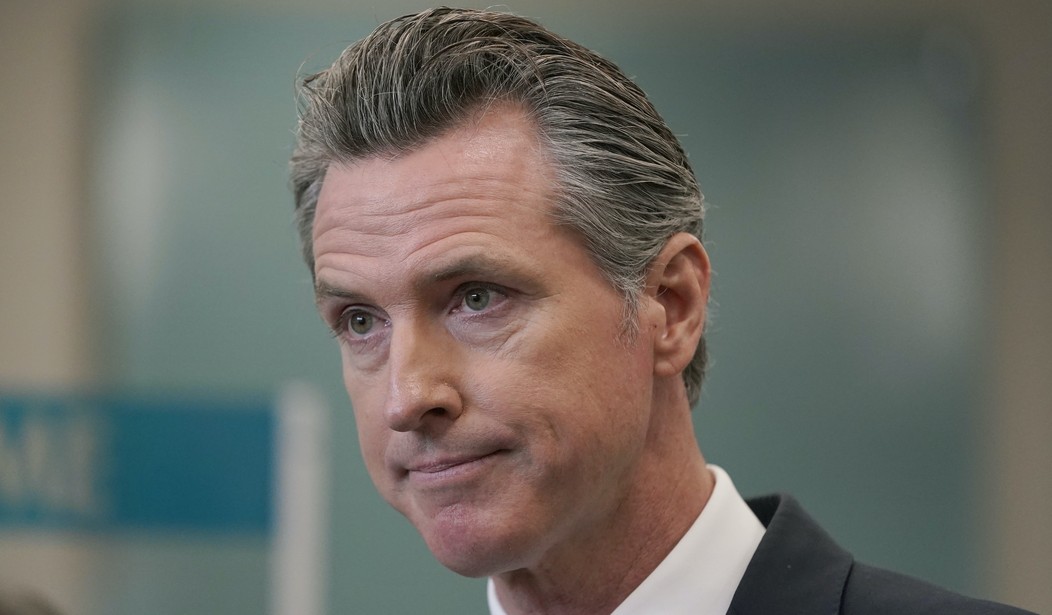A few days ago Reuters published a 7,000 words novella disguised as journalism. The article that I dissected reported that two Supreme Court Justices, five presidents, and over 100 legislators were descended from ancestors who owned slaves. From a policy measure, it carries the same relevancy as if those same people had a horse-stealing ancestor. The irony is that Donald Trump is the only president without a slave-owning link. The gnashing of teeth at Reuters and the Lincoln Project could be heard from space.
Not to be outdone, the State of California launched a Reparations Task Force. Its purpose was, ultimately, to demand money from taxpayers who never owned slaves via a state that was never a slave state for people who were never enslaved.
The Task Force preliminarily suggested a number. A big number—800 billion dollars. When the number was publicly released, the response was less than warm. That payout would dwarf the state’s budget. If the state wasn’t already deeply in debt, it would be if it paid billions for “reparations.” Even Gavin Newsom balked.
The Final Report, which cost California $2.5 million, is massive. It runs a “Moby Dick” length of 1,000 pages, most of which is a regurgitation of wrongs that no one living had a hand in. From the report:
Today, 160 years after the abolition of slavery, its badges and incidents remain embedded in the political, legal, health, financial, educational, cultural, environmental, social, and economic systems of the United States of America. Racist, casteist, untrue, and harmful stereotypes created to support slavery continue to physically and mentally harm African Americans today.
And, by example, the report doesn’t use “meany” words like “felon.” Instead, a felon is a “returning citizen.” There is no glossary definition for when the felon stops returning and is fully returned.
By labeling people as nothing more than their criminal justice status, these words deny people their full personhood and reinforce a stigma that prevents people from fully participating in society.
The California Globe lists the over 140 bullet points that, besides the demand for money, the Task Force is recommending a whole lot of nonsense. It Included:
-
Repeal of Proposition 209. 209 forbid racial preferences by the state. It amended the Constitution to prohibit state institutions from considering race, sex or ethnicity in hiring. Apparently not considering race in hiring is, for the Task Force, a bad thing.
-
Make Legislative Findings that Build Legislative Records that Reflect the Historic and Present State of Pervasive Structural Barriers and Discrimination Against African Americans and Support Reparative Enactments.
-
Amend the California Constitution to Prohibit Involuntary Servitude. Yes, the Task Force wants to make slavery illegal.
-
Address and Remedy Discrimination Against African American LGBTQ+ Youth and Adults, Reduce Economic Disparities for the African American LGBTQ+ Population and Reduce Disparities in Mental Health and Health Care Outcomes for African American LGBTQ+ Youth and Adults.
Those are but four of the over 140 bullet point demands from the Task Force. The Task Force wants to Illegally amend the Constitution, make a record where the state, apparently, constantly apologizes for slavery, abolish slavery (apparently they never heard of the 13th Amendment), and, something about the alphabet gang, but only for gender-confused blacks.
After the Task Force said that it wanted $800 billion and got instant blowback, it collectively threw up its hands and said, “Stop focusing on the money!”. It’s more a guideline than a hard demand. It reminded me of this:
It was hard not to want an explanation when one considers how absurd the recommendation was. It is two and a half times the state’s budget. Then, the Task Force reduced the number to around $200 billion with no further explanation as to why or how it came up with the lower number. It’s almost like it was a shake-down that went sideways, and the response was, “ok, how about $200 billion? Will that work?”
Richard Weaver, the legal advisor to the California Globe, said:
This is an embarrassing, patronizing, slapdash, and offensive list of recommendations,” First of all, they didn’t even bother to spellcheck it, as it is riddled with typos, misspellings, and errors. The most important thing these members have ever done, and they couldn’t be bothered to run spellcheck. If they cared so much about this, they would have put more care into it.
A lot of these recommendations California is currently working on, so their inclusion here is meaningless. Others are now pretty much illegal, like the repeal of Prop 209 since that was solidified into federal law on Thursday. And still others are not a matter for the legislature to decide, but rather voters, the court system, or other means. Some are even repeated numerous times, like abolishing the death penalty.
I read the executive summary. Just based on the summary, Weaver is spot on. The report is a lot of nonsense, and there are spelling errors and clunky language just in the summary. Reading just the summary was hard enough. Falling asleep was an option. If you want to read the entire report, you can find it here.
Good luck.














Join the conversation as a VIP Member